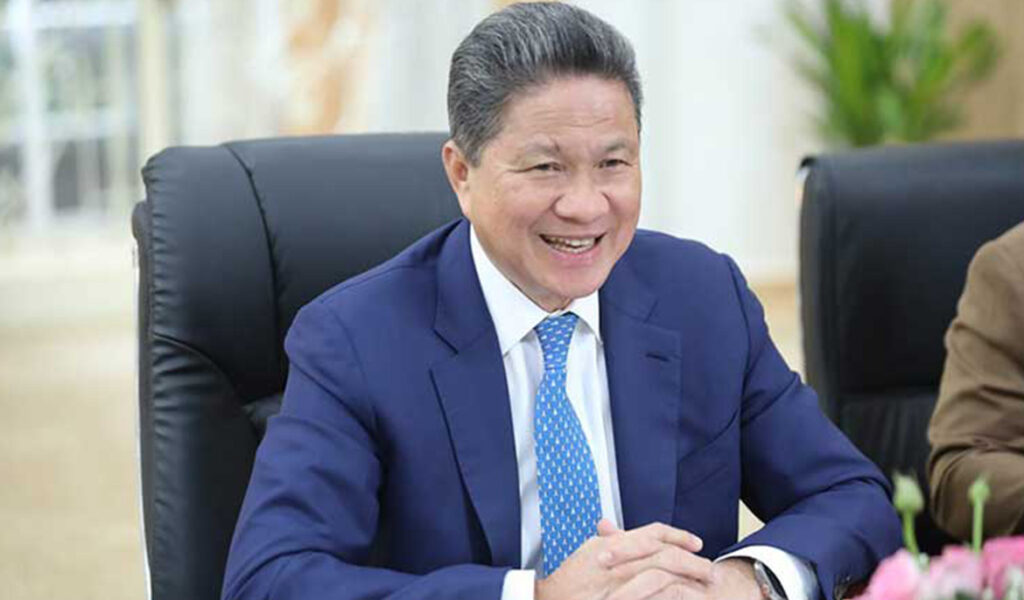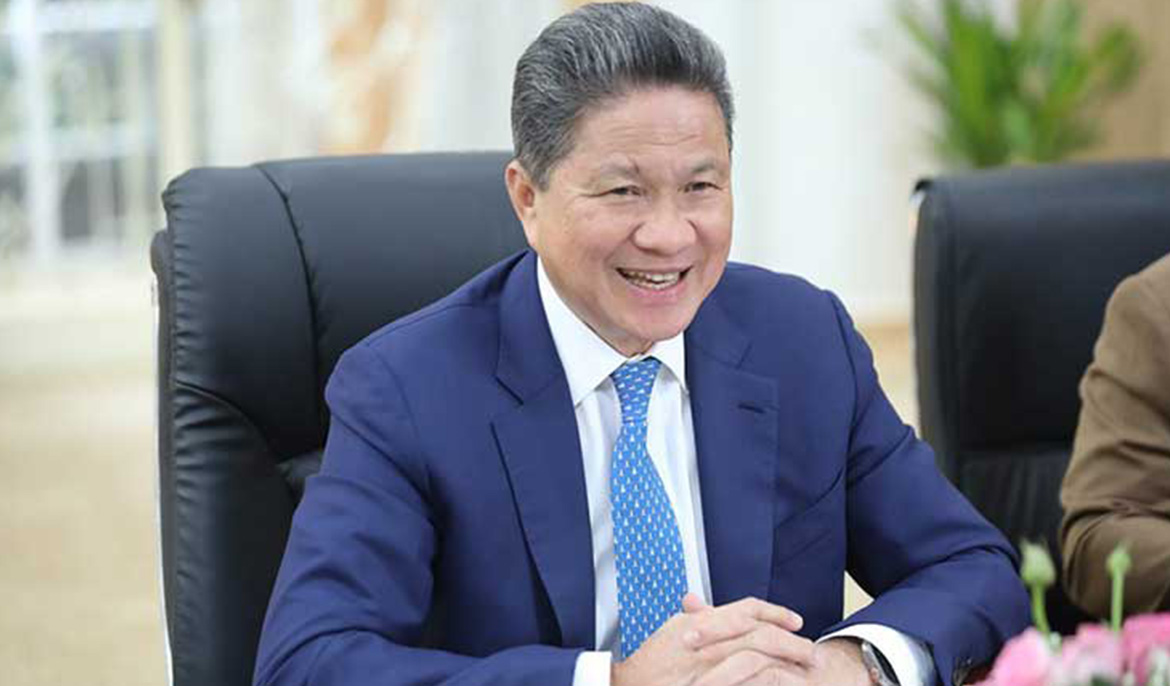Sun Chanthol, Deputy Prime Minister and First Vice-Chairman of the Council for the Development of Cambodia (CDC) on Sunday told the local working groups of Phnom Penh capital to examine the possibility of developing a smart city application (mobile app) aimed at managing the provision of public service, providing information and getting feedback from the communities.
The Deputy Prime Minister initiated the development of the application during a meeting of the summary report for the first half of 2024 and the direction of the implementation of the Royal Government of Cambodia’s local working group of Phnom Penh capital which was attended by Dr Om Yentieng, Senior Minister in Charge of Special Mission.
The meeting considered an important agenda in monitoring and reviewing the performance of the local working group of Phnom Penh as well as enabling the team to set new directions and activities with high responsibility aimed at supporting the implantation of RGC’s policies, priorities projects and measures especially focusing on facilitating the local communities in the capital.
During the meeting, Chanthol asked the local team to examine the possibility of creating a mobile app to manage the provision of public services, provide updated information and allow citizens to report problems encountered in the city to local authorities and relevant administrations, solving their problems in a timely manner.
Chhay Sinarith, Senior Minister in Charge of Special Mission, Sok Siphana, Senior Minister in Charge of Special Mission, Chheang Ra, Minister of Health, Heng Sour, Minister of Labor and Vocational Training, Chea Vuthy, Secretary General of Cambodian Investment Board of CDC and Brasoeur Molyka, Deputy Director of the Deputy Prime Minister’s Cabinet were also present.
Speaking to Khmer Times, Niraj Gupta, Director of Marco Computing Solution Co Ltd in Cambodia said, “A smart city app is an innovative mobile application designed to enhance urban living by integrating technology into city management.”
He said that the platform shall facilitate the efficient provision of public services, and streamline communication between the government and citizens while also gathering real-time feedback from communities. Such an app can improve traffic management, waste disposal, public safety, and others, making the city more responsive to residents’ needs.
“By leveraging data and technology, the app aims to create a more sustainable, efficient, and livable urban environment. The initiative by the Cambodian government to develop this app represents a significant step towards modernising city management and fostering community engagement,” the Director said.
Separately on Tuesday, Suon Sophal, Deputy Secretary General of CIB received a courtesy call from a delegation led by Datuk Mohamed Shihab, Chief Executive Officer of GL Global Secure Co Ltd, aimed at learning the legal and regulatory aspects of investing in the Centralised Information System (CIS) solution in Cambodia.
During the meeting, the delegation introduced the main functions of the Phone Cellular Blocking Service (PCBS) in protecting and strengthening the security system in the user telephones.
The company also presented key functions of the system as well as sharing experiences of implementing the project with the governments of Malaysia, Nepal and the Philippines.
Catherine Germier-Hamel, Founder and CEO of Millennium Destinations said, “Phnom Penh’s initiative to develop a citizen-focused mobile app is both a smart and sustainable move as it will enable the city to upgrade its services to residents, visitors, businesses, and investors.
The platform will strengthen city branding, foster inclusivity, and create a more appealing environment. “By offering features like reporting city service issues and personalised updates, the app can build stronger relationships and citizen engagement however ensuring accessibility for those without smartphones is crucial hence the alternative reporting methods or kiosks could bridge the gap,” she added.



